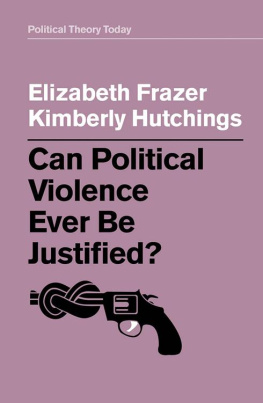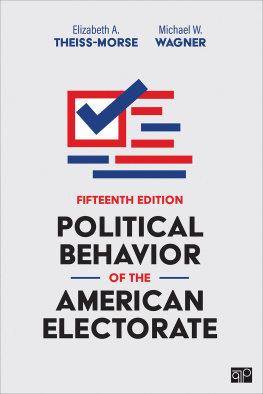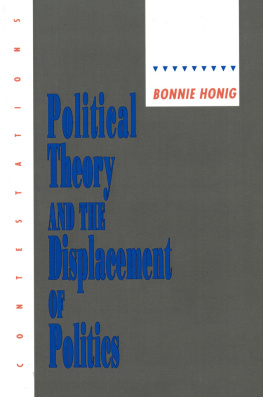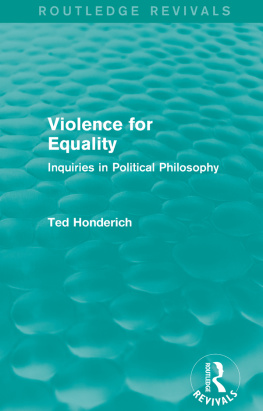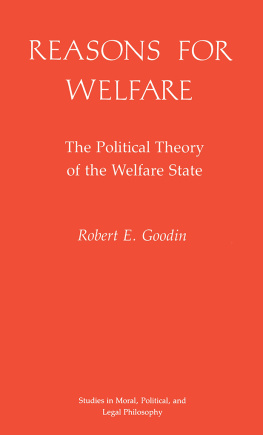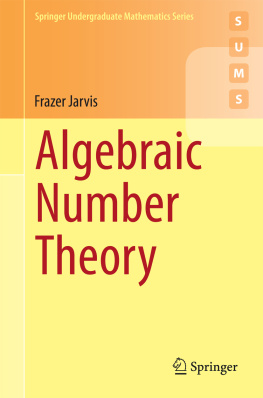Elizabeth Frazer - Can Political Violence Ever Be Justified? (Political Theory Today)
Here you can read online Elizabeth Frazer - Can Political Violence Ever Be Justified? (Political Theory Today) full text of the book (entire story) in english for free. Download pdf and epub, get meaning, cover and reviews about this ebook. year: 2019, publisher: Wiley, genre: Politics. Description of the work, (preface) as well as reviews are available. Best literature library LitArk.com created for fans of good reading and offers a wide selection of genres:
Romance novel
Science fiction
Adventure
Detective
Science
History
Home and family
Prose
Art
Politics
Computer
Non-fiction
Religion
Business
Children
Humor
Choose a favorite category and find really read worthwhile books. Enjoy immersion in the world of imagination, feel the emotions of the characters or learn something new for yourself, make an fascinating discovery.
- Book:Can Political Violence Ever Be Justified? (Political Theory Today)
- Author:
- Publisher:Wiley
- Genre:
- Year:2019
- Rating:4 / 5
- Favourites:Add to favourites
- Your mark:
- 80
- 1
- 2
- 3
- 4
- 5
Can Political Violence Ever Be Justified? (Political Theory Today): summary, description and annotation
We offer to read an annotation, description, summary or preface (depends on what the author of the book "Can Political Violence Ever Be Justified? (Political Theory Today)" wrote himself). If you haven't found the necessary information about the book — write in the comments, we will try to find it.
Can Political Violence Ever Be Justified? (Political Theory Today) — read online for free the complete book (whole text) full work
Below is the text of the book, divided by pages. System saving the place of the last page read, allows you to conveniently read the book "Can Political Violence Ever Be Justified? (Political Theory Today)" online for free, without having to search again every time where you left off. Put a bookmark, and you can go to the page where you finished reading at any time.
Font size:
Interval:
Bookmark:
Political Theory Today
Janna Thompson, Should Current Generations Make Reparation for Slavery?
Christopher Bertram, Do States Have the Right to Exclude Immigrants?
Diana Coole, Should We Control World Population?
Christopher Finlay, Is Just War Possible?
George Klosko, Why Should We Obey the Law?
Emanuela Ceva & Michele Bocchiola, Is Whistleblowing a Duty?
Elizabeth Frazer & Kimberly Hutchings, Can Political Violence Ever Be Justified?
Elizabeth Frazer
Kimberly Hutchings
polity
Copyright Elizabeth Frazer and Kimberly Hutchings 2019
The right of Elizabeth Frazer and Kimberly Hutchings to be identified as Author of this Work has been asserted in accordance with the UK Copyright, Designs and Patents Act 1988.
First published in 2019 by Polity Press
Polity Press
65 Bridge Street
Cambridge CB2 1UR, UK
Polity Press
101 Station Landing
Suite 300
Medford, MA 02155, USA
All rights reserved. Except for the quotation of short passages for the purpose of criticism and review, no part of this publication may be reproduced, stored in a retrieval system or transmitted, in any form or by any means, electronic, mechanical, photocopying, recording or otherwise, without the prior permission of the publisher.
ISBN-13: 978-1-5095-2923-0
A catalogue record for this book is available from the British Library.
The publisher has used its best endeavours to ensure that the URLs for external websites referred to in this book are correct and active at the time of going to press. However, the publisher has no responsibility for the websites and can make no guarantee that a site will remain live or that the content is or will remain appropriate.
Every effort has been made to trace all copyright holders, but if any have been overlooked the publisher will be pleased to include any necessary credits in any subsequent reprint or edition.
For further information on Polity, visit our website: politybooks.com
Consider the following scenarios:
- X has knowledge of terrorist networks that have been involved in violent attacks on civilian populations. The government approves the torture of X in order to gain information that will prevent such attacks.
- X is a member of an oppressed majority population that has failed to gain its independence from colonial rule through non-violent methods. X takes up arms against the colonial power.
- X knows that the current economic structure sustains massive exploitation, violence and oppression. X becomes committed to the overthrow of capitalism by all means necessary, including violence.
These decisions are simplified versions of actual events. All are also the subject of critical scrutiny by activists and scholars. Political violence is never a taken-for-granted political event; it always raises questions. Who has the right to authorize, or to use, violence? Against whom is it right to use it? What is the right way to use it? What limits should be placed on violence? All these questions are about what makes violence in politics justifiable. In this book, we address and respond to that issue in relation to different types and contexts of political violence, and draw on a range of cases and examples, including instances of these three scenarios: violence by states for the defence of populations and the maintenance of order; violence by non-state actors against colonial states, for liberation; and revolutionary violence by those seeking to transform the global political and economic order. We argue that the ways in which political violence has been justified now and in the past fail, and that political violence can never be justified.
In , we look more closely at our two key concepts: political violence and justification. We examine how political violence can be understood in narrower or broader terms, and what this implies for what counts as political violence, and therefore needs justification. We then analyse what justification means. We suggest that it means making an action right, prospectively. A level of confidence is needed, in advance, that the harms involved in political violence may be somehow compensated for or cancelled out by other considerations, such as good outcomes, laudable goals or some characteristic of the violence itself, perhaps the courage or unselfishness of the violent actor.
In we analyse justificatory arguments based on the idea that violence is one means to certain ends, using the examples of the campaigns of the Red Brigades in Italy and the Irish Republican Army (IRA) in Ireland in the 1970s, and of historic and contemporary anti-state, revolutionary violence. Consequentialists argue that certain ends (freedom, equality etc.) can justify the use of violent means. But pure consequentialist reasoning runs into difficulties; so some thinkers focus, in addition, on our rights, and what is permitted in defence of them; or on our duties, and whether violent action is either permissible or required in doing our duty. The thinkers we discuss tend to the view that whereas the violence of the state is to be taken for granted and needs no justification, the violence of people against established governments does need special justification. These thinkers also treat political violence in instrumental terms. Justifiable political violence is used to do something good.
examines arguments that start from scepticism about the calculative tenor of that reasoning, drawing on perspectives influenced by marxism and existentialism, in the contexts of the stalinist purges of the 1930s, the nazi occupation of France in World War II and the anti-colonial struggle in Algeria in the 1950s and 1960s. From these perspectives, politics is not a realm in which means stand in stable relation to ends or in which violence is one option for political action amongst others. We examine analyses which emphasize the necessity, but also the unpredictable effects, of violence in politics, and go on to explore a range of alternative justifications of political violence, drawing on virtue and aesthetic categories.
about justifying political violence rest on a misconception about the nature of politics. This, she argues, is antithetical to means-and-ends reasoning and cannot possibly provide justifications for the use of violence as a political means. In the final section, we consider how thinking about violence itself as a set of practices, for example the practice of torture or the practice of war, further complicates the idea that violence is a straightforward political tool, and draws attention to the kinds of political relations and values that inhere in violent actions and their conditions of possibility.
In , drawing on material discussed in previous chapters, we return to arguments about particular instances of political violence state use of interrogational torture against suspected terrorists, anti-colonial and anti-capitalist violence and critique attempts to justify political violence. We argue that none of the justifications we have examined is persuasive, and moreover that these different justifications play a constitutive role in the practice of political violence. In our Conclusion we elaborate on our claim that political violence is never justified, and discuss its political implications.
Violence and Justification
To address the question of whether political violence can be justified, we need to establish what we mean by political violence, and what counts as justification. This chapter sets out some preliminary thoughts.
Font size:
Interval:
Bookmark:
Similar books «Can Political Violence Ever Be Justified? (Political Theory Today)»
Look at similar books to Can Political Violence Ever Be Justified? (Political Theory Today). We have selected literature similar in name and meaning in the hope of providing readers with more options to find new, interesting, not yet read works.
Discussion, reviews of the book Can Political Violence Ever Be Justified? (Political Theory Today) and just readers' own opinions. Leave your comments, write what you think about the work, its meaning or the main characters. Specify what exactly you liked and what you didn't like, and why you think so.

